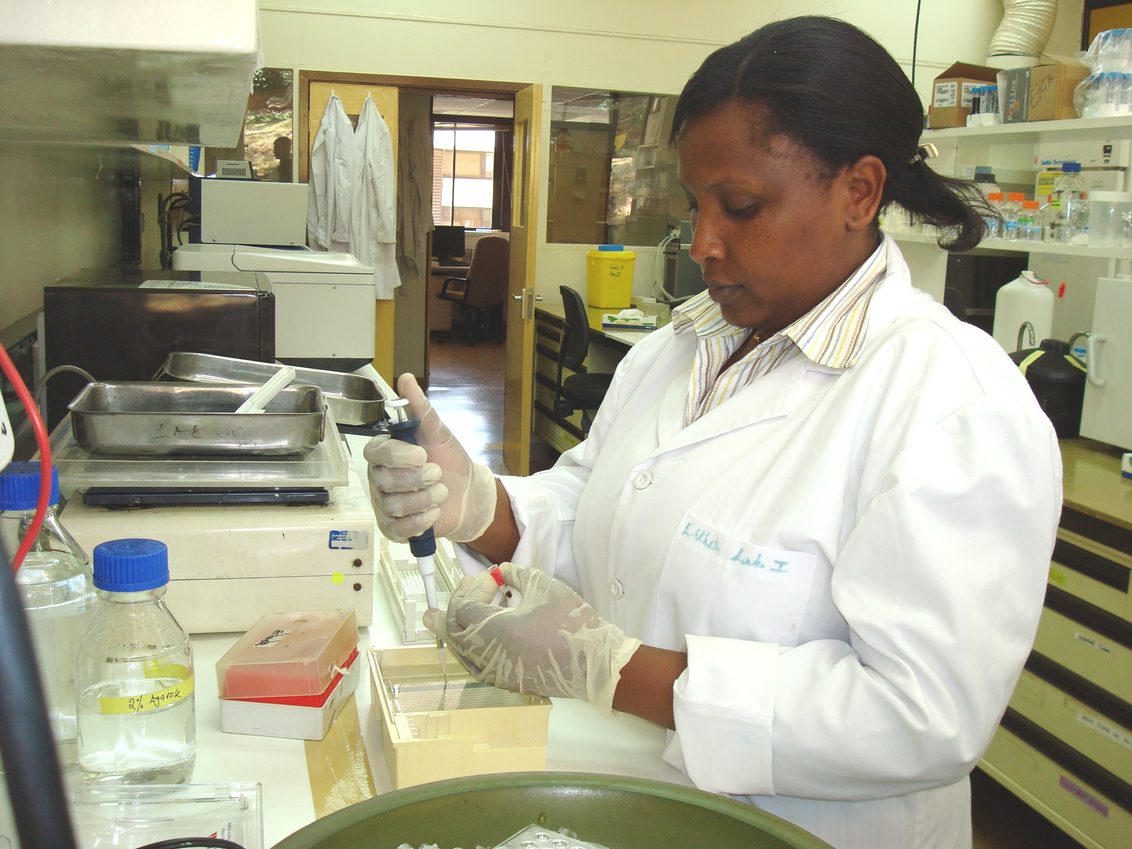The Foundation supports the BecA Hub, a bioscience center based in Kenya. BecA hosts African research projects designed to achieve food security for resource-poor farmers. A strong focus is on improving orphan crops and livestock using innovative bioscience technologies.

Biosciences and agriculture in Africa
One of the many challenges for Africa is to use new developments in biotechnology to reduce poverty and create wealth in sustainable and equitable ways. Many of the problems constraining Africa's development require solutions tailored to local, national, and/or regional circumstances. Some solutions can be developed from existing knowledge and technologies. Many, however, require new knowledge, new discoveries and innovation — by Africans, for Africa.
Agriculture is the mainstay of most people's livelihoods throughout Sub-Saharan Africa. The agricultural sector provides food for people living in rural and urban areas. It is the main source of employment. Foreign exchange earnings for most countries come from the export of agricultural commodities. A thriving agricultural sector provides the engine of growth for broader social and economic development.
Current constraints to the optimal use of biosciences in Africa
- Lack of siffucient, suitable trained scientists, who are able to function effectively as scientists in Africa
- Lack of adequate laboratory facilities and equipment and the human and financial resources essential to operate , maintain and sustain them.
- Lack of clear problem definition, based on dialogue amongst farmers, consumers, researchers and the public and private sectors.
- Shortage of operating funds for projects
- Limited local private sector involvement in science and technology applications in Africa, in order to develop and deliver products to market.
- Lack of contact between the Adrican scientific community and the international scientific and agricultural community.
About BecA
BecA (Biosciences eastern and central Africa) is endorsed by the Steering Committee of the New Partnership for Africa's Development (NEPAD). Its aim is to support African countries develop and apply bioscience research and expertise to help resource-poor farmers secure their assets, improve productivity, increase their market opportunities, and raise income.
Read the BecA Blog.
BecA is part of a biosciences platform based at the International Livestock Research Institute (ILRI) campus in Nairobi, Kenya. The Hub hosts research projects implemented by African partners, and provides research-related services, training and capacity-building for African scientists. BecA is also responsible for all biosciences technologies and activities of projects on the ILRI campus, including international partners. The research projects are dedicated to solving problems in African agriculture.
During the design and implementation phases in 2004-2008, the Syngenta Foundation was a major partner, contributing support, consulting, and coaching in three main areas:
- business planning, organization, management, finance, facility design,
- core competencies and equipment,
- market-oriented agro-biology research programs.
As of 2009, the Foundation and ILRI established a stronger partnership. The Foundation now provides financial, managerial, and scientific support and knowhow to the BecA Hub for practically oriented research, to create value for product development and delivery to resource-poor producers and consumers. This contribution facilitates continuing affordable access to the Hub by African scientists and post-graduate students.
Objectives and activities
The main objective of BecA is to significantly improve food security for resource-poor farmers in the near future by improving African orphan crops and livestock with the help of innovative modern bioscience technologies. Specifically, the focus will be to produce research outputs that can be developed into new products and technologies for measurable impact on African agriculture and benefits to resource-poor farmers. Achieving this outcome requires strengthening the research capabilities of African scientists and institutions.
Based on this main objective, BecA will work to:
- Promote scientific excellence by bringing together a critical mass of scientists drawn from national, regional, and international institutions in modern facilities where they can undertake cutting-edge research. The goal is to help solve some of the most important agricultural development constraints affecting the health and well-being of people in Africa.
- Create and strengthen human resources in biosciences and related disciplines in Africa.
- Increase access to affordable, world-class research facilities within Africa.
- Serve as a platform to forge partnerships with other biosciences laboratories and with those entities responsible for product development and delivery, within Africa and globally.
In early 2016, BecA celebrated 15 years of activities.
